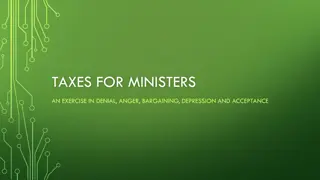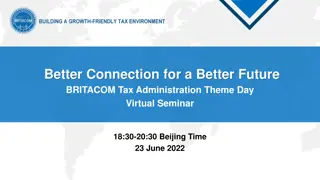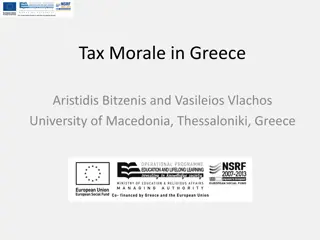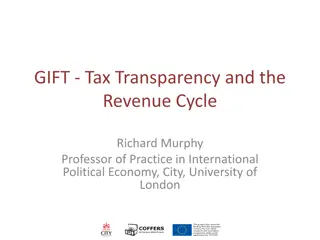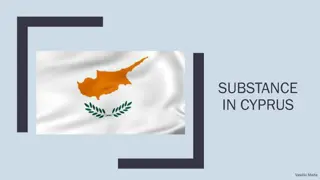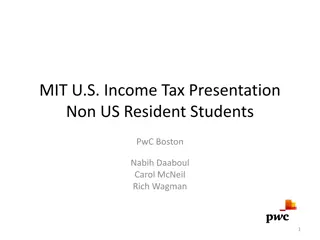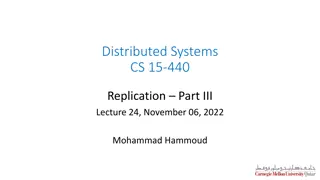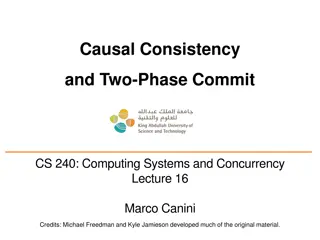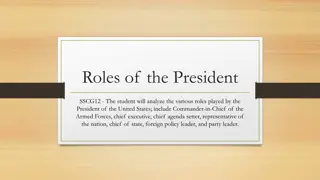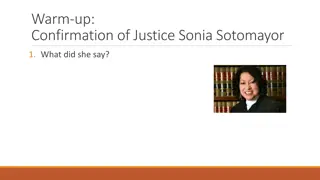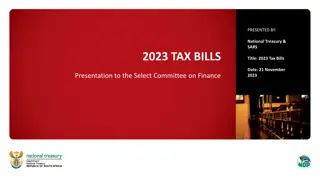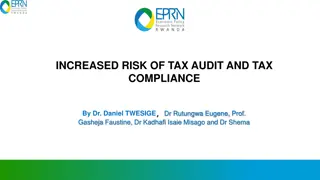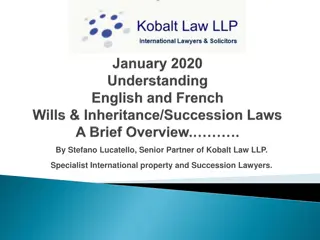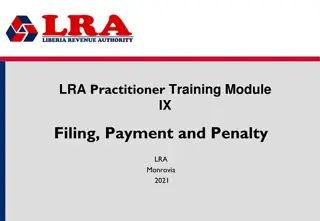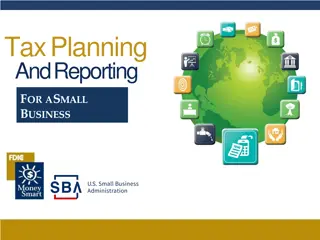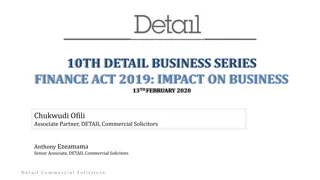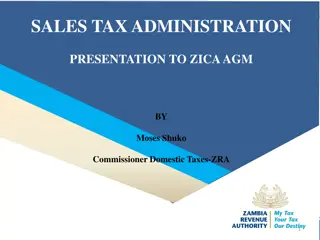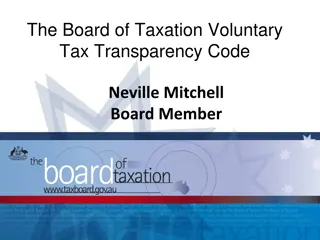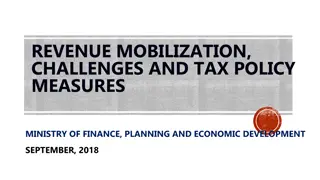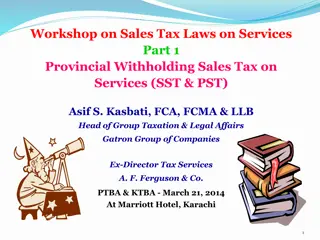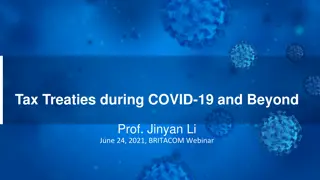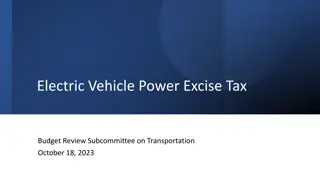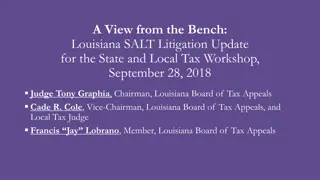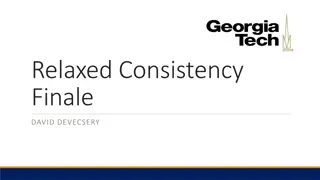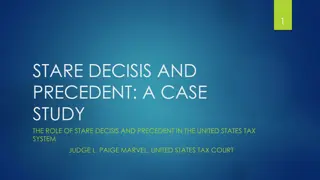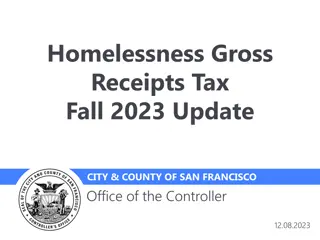Quoting Ralph Waldo Emerson: A Chief Justice's Perspective on Tax Court Consistency
The Chief Justice of Canada's Tax Court referenced Ralph Waldo Emerson's famous quote in a judgment, highlighting the significance of avoiding foolish consistency. This insight offers a unique viewpoint in the world of tax jurisdiction, emphasizing the value of voluntary and self-assessed approaches on a global scale.
Download Presentation

Please find below an Image/Link to download the presentation.
The content on the website is provided AS IS for your information and personal use only. It may not be sold, licensed, or shared on other websites without obtaining consent from the author. Download presentation by click this link. If you encounter any issues during the download, it is possible that the publisher has removed the file from their server.
E N D
Presentation Transcript
Team 2 Tax INN OFCOURT
??Question?? Which country s Chief Justice to its Tax Court quoted Ralph Waldo Emerson in a judgment he entered, suggesting that A foolish consistency is the hobgoblin of little minds ?
Canada Tax jurisdiction -Worldwide Voluntary Self-assessed Federal corporate income tax rate - 15%; Provincial rates - 8% to 15%. Federal personal income tax rate is 33%; Provincial top rates 11.5% to 21.8%. Tax Authority Canada Revenue Agency (CRA) Can audit up to 4 years after return filed Examination Procedures Corps w/ gross income over CAD 250 million annual risk assessment Corps w/ gross income CAD 20 to 250 million audit selection screening process and identified risk. Corps under CAD 20 million random selection Appeals Consideration Independent review
Canada Courts Appeals to Tax Court 90 days of notice of reassessment or notice of confirmation Informal procedure similar to S procedures in U.S. Tax Court decisions appealed to Federal Court of Appeal Then to Supreme Court of Canada Items of Special Interest 1988 enacted General Anti-Avoidance Rule (GAAR) Similar to IRC section 7701(o) The 2022 federal budget proposes to spend CAD 1.2 billon over 5 years on the expansion of audits of larger entities and non-residents engaged in aggressive tax planning
Canada Honorable Gerald J. Rip Former Chief Justice of the Tax Court of Canada Called to Bar of Quebec 1966 Department of Justice 1972 Appointed to Tax Court 1983 Appointed Assistant Chief Justice 2006 Named Chief Justice 2008
??Question?? Which country s tax program targets the largest 1,000 public and multinational companies for tax compliance?
Australia Tax jurisdiction Worldwide Entities and individuals Rates - Individuals 19% to 45% / Non-residents 32.5% to 45% No local tax on personal income Corporation rate -30% uniform Franking Credit AKA imputation credit Corps pay to shareholders eliminates double taxation Compliance - Individuals & Corporations Self-assessment Taxes VAT 10% - shared w/ states No state income tax Other taxes Tax Authority Australian Taxation Office ( ATO ) Income Tax Assessment Act of 1997 Other tax legislation ATO issues private rulings
Australia Examination Process Individuals - Review Process and Audit Process Corporations justified trust concept from the OECD seeks objective evidence ATO uses risk-based approach Significant Global Entities Top 1000 ATO engages taxpayers using tailored compliance approaches Appeals Consideration/Resolution Independent Review of Position Paper Review by senior officer in ATO s Law Design and Practice Group -Not involved in audit Administrative Appeals Tribunal Court System Federal Courts (Single Judge) Taxation National Practice Appellate Review Full Federal Court (3 judges) High Court of Australia
Australia Items of Special Interest Australia has a single Administrative Appeals Tribunal for all administrative appeals. Appeals from the AAT to the Federal Court are very limited. It must be on a question of law, and not one of fact. If the AOTissues an assessment, the debt arising therein is immediately due and payable, even if the taxpayer is challenging the underlying basis for the assessment in the AAT or the Federal Court. The AOT and the taxpayer may reach agreement so that the AOTdoes not enforce the debt while the assessment is being challenged, but interest accrues (currently at about 12%). The Significant Global Entities program targets the largest 1,000 public and multinational companies for tax compliance.
??Question?? Which country fines an individual taxpayer 15 if the taxpayer fails to file online two years in a row?
France Tax jurisdiction Individuals -Worldwide Corporations Territorial PE test Non-resident company subject to CIT Rates - Individuals Residents - progressive / Non-residents 30% No local tax on personal income Corporation rate - 30% uniform Compliance Individuals -2019 started -Pay as You Earn (PAYE) system Government sends out first tax notice Taxpayers complete Form 2042 Online Corporations Yearly filing / payments quarterly Online
France Taxes Federal level VAT 20% Local taxes Tax Authority French Tax Administration ( FTA ) French Parliament Legislation establishes annual rates and types Examination Process Individuals -simple -when disbursements exceed receipts, the difference is considered hidden income unless the taxpayer responds to Government s request
France Examination process (Cont.) Corporations simple Tax inspector makes an assessment and once notified, if taxpayer disagrees, taxpayer has 30 days to answer (with a possible 30-day extension upon request) and to provide comments to the FTA. If no agreement either FTA or taxpayer can submit to departmental or national tax commission Appeals Consideration/Resolution Taxpayer can bring an out-of-court appeal Court System Two kinds Judicial and Administrative (public law applied in these) including interpretation of tax laws Appellate Review Same as other cases Highest administrative court Council of State 8 courts of appeal 42 tribunals
France Items of Special Interest For individuals -There is a fine of 15 if a taxpayer fails to file online two years in a row. There is, however, a late filing assessment of 10% (majoration). For corporations -The FTA is required to transfer to the prosecutor any tax reassessment exceeding the amount of 100,000, provided that said reassessment notably gives rise to the application of a 100% tax penalty, 80% tax penalty, or 40% bad faith penalty in cases where a 40% or 80% tax penalty or a tax fraud proceeding already occurred in the past six years.
??Question?? Which country has the majority of its Federal taxes administered by the State tax administration?
Germany Tax jurisdiction Worldwide All resident individuals and corporations are taxed on their worldwide income German sources Nonresident individuals are subject to tax on German sources Voluntary/Compulsory Tax Individuals -There is no self-assessment. The tax office issues a final assessment notice after having reviewed the income tax return. Corporations -Returns are filed for each calendar year and reflect the financial statements for the business year ending in that calendar year. The tax office issues a final assessment notice after having reviewed the income tax return.
Germany [continued] Tax Authority Examination Procedures Two-tier structure (Federal and State). The majority of taxes are administered by the state administration. Appeals Consideration -Mandatory internal administrative appeal proceeding within the tax authority before filing suit. Court System Trial Courts There are 18 tax courts in Germany. Each tax court is divided into senates. Each senate consists of three professional judges and two non- professional (honorary) judges Appellate Courts -The judgments of the tax court are subject to appeal to the Federal Tax Court.
Germany Items of Special Interest Reliance on advisers does not excuse the taxpayer as any fault by a representative of the taxpayer (including attorneys, accountants or tax advisers) is attributed to the taxpayer. There is no pre-payment forum to contest taxes. There is a voluntary disclosure program that protects against criminal liability as long as no notice of a field tax audit or prosecution has been given. The voluntary disclosure must cover a 10 year period.
??Question?? Which country has no joint tax return for husband and wife?
China Tax jurisdiction: Individuals and corporations are taxed on worldwide income. Individuals taxed on worldwide earned income if reside more than 183 days in China. The system is separate from the income tax systems of Hong Kong and Macau which are administered separately. Territorial- No local or provincial tax. Rates: Individuals-3%-45% Dividends-taxed at 20% except if from Shanghai, Shenzhen, and Beijing exchanges ( 3 exchanges ) and then entitled to 50% to 100% deduction depending on holding period. Capital gains exempt from tax if from 3 exchanges. Interest on government bonds, issued by Chinese government, are exempt.
China Corporate tax: Tax Resident Enterprises ( TRE s ) are subject to corporate income tax ( CIT ) on worldwide income. Standard CIT rate is 25%. Qualified new high technology companies are subject to 15% CIT. Key software enterprises get 10% rate after first 5 years of tax exemption. Lower CIT rates available in specific regions for specific sectors, industries. Qualified enterprises engaged in pollution reduction and prevention-15%. Qualified enterprises in R &D in key industries relating to integrated circuits, artificial intelligence, biomedicine, civil aviation, receive 15% CIT for 5 years.
China Tax Code: 18 different types of taxes: Goods and services, income and corporate, property and behavior taxes farmland occupation, urban maintenance, environmental protection. Tax Authority: The National People s Congress (NPC), State Council (SC), State Administration of Taxation, Ministry of Finance, State Administration of Foreign Exchange. Tax Laws enacted by NPC: Supplemented by administrative rules from SC. Local rules are only enforceable in specific region.
China Examination Process: China tax authority is State Administration of Taxation ( SAT ). TP can request that SAT review their decisions through reconsideration. If disagreement, TP may administratively appeal, then administratively litigate within 15 days of SAT decision or Court Litigationcan begin within six months from date they become aware of administrative decision. Criminal tax evasion: must be relatively high (over 10% but less than 30% of tax owed) or repeat offender. Criminal standard: false tax return or no return with intent of deception or concealment. 3 years imprisonment. But can avoid jail by paying overdue tax and penalties.
China Court Proceedings: Higher People s Courts have jurisdiction in first instance. Supreme People s Court has jurisdiction over major cases in country. Once TP meets its burden through procedural predicates, burden shifts to tax authority that decision being challenged is accurate and must produce relevant support for its decision. The Tax Authority may not collect any evidence from TP or witnesses during trial. Only court has authority to demand additional evidence. Elements of Trial: Chinese courts are more focused on documentary evidence than arguments by lawyers. Opening and closing arguments do not have much sway. Litigation costs Borne by losing party. Mixed result: costs apportioned.
China TAKEAWAYS No joint tax return for husband and wife. 25% tax business enterprise corporate tax rate, 15% for special types. 3%-45% individual tax rate. Generally, one national tax not provincial. Once taxpayer meets initial burden, burden shifts to government. Litigation costs borne by loser.
??Question?? What country had only 4% of its households file tax returns in 2019?
India Authority for Taxation: Indian Constitution -> Confers power to central government and state governments to levy taxes Article 246 of the Constitution distributes legislative powers, including taxation, between Parliament and the State Legislatures; Schedule VII enumerates these subject matters with the use of three lists: List I: where only Parliament is competent to make laws, List II: where only the State Legislatures can make laws, and List III: where both Parliament and the State Legislature can make laws Direct vs. Indirect Taxes: The tax structure in India is divided into direct and indirect taxes. Direct taxes: levied on taxable income earned by individuals and corporate entities, the burden to deposit taxes is on the taxpayers themselves. Indirect taxes:levied on the sale and provision of goods and services respectively and the burden to collect and deposit taxes is on the sellers instead of the taxpayers directly. GST Regime: 2017 reform produced comprehensive indirect tax levied on manufacture, sale and consumption of goods as well as services at the national level. It replaced all indirect taxes levied on goods and services by the Central and State Governments.
India Tax jurisdiction Corporations: An Indian company is taxed on its worldwide income A foreign company is taxed only on income that is received in India, or that accrues or arises, or is deemed to accrue or arise, in India subject to any favorable tax treaty provisions Individuals: Indian individuals are taxed on worldwide income Double taxation avoided through for credit of the lower of the foreign tax or Indian tax either under applicable treaty or Indian law
India Voluntary Compliance: Tax year begins on April 1 and ends on March 31 All the taxpayers liable to pay tax under the Indian Tax Act ( ITA ) are required to file an annual income tax return. Individuals with gross total income less than the prescribed threshold (of Rs 10 lakh (one lakh = 100,000), which seems to be around $12,000) are exempt from filing a tax return. There is no difference in indirect tax reporting requirements between a business entity and an individual. Indirect tax compliance: generally on a self-assessment basis. The tax department usually inspects a taxpayer when a proper officer, not below the rank of Deputy Commissioner, has reason to believe that the taxpayer has suppressed any transaction or escaped any payment of tax.
India Examination Returns are reviewed by Assessment Officer ( AO ) electronically for filing and payment compliance. After review, the AO may select the tax return either for a limited scrutiny - in which the review is limited to specific reasons/issues, or for a detailed scrutiny - in which there is detailed examination or assessment of the issues involved. Note: Taxpayers are classified into different geographic and occupation specific jurisdictions, called ranges. Each range in turn consists of between five and fifteen assessment units, which are either wards or circles, depending on taxpayer income. AOs are assigned to each assessment unit. AOs normally conduct the review in the form of a personal appearance of the taxpayer or through an authorized representative appointed by the taxpayer. Recently, AOs have started conducting reviews electronically. Note: during detailed scrutiny or assessment, the tax authorities may request the taxpayer to provide books and other related documents such as financial records, vouchers, invoices, agreements, bank statements and any other evidence that the tax officer finds it necessary to examine. Under the ITA, as per the last available data in 2019, the total number of returns filed was 68.6 million (but 1.3 billion people), out of which only 0.35 per cent were selected for review. Further, out of these 0.35 per cent of the returns, 0.15 per cent were select for limited scrutiny and the remaining 0.20 per cent were selected for complete scrutiny. Thus, a total of 99.65 per cent of the returns were accepted as is.
India Courts Initial Scrutiny Tax Officer/Assessing Officer: tax authority, which acts in a quasi-judicial manner acting as both investigator and adjudicator. Administrative Review Commissioner: a first appellate administrative adjudicator with powers co-extensive and coterminous to the primary tax authority. Appellate Review Income Tax Appellate Tribunal (ITAT) or Customs Excise and Service Tax Appellate Tribunal (for indirect tax): the appeal is heard in a manner like that of a civil court Bench consists of a judicial member and an accountant member Judicial Review High Court: highest courts of appellate jurisdiction in each State and Union territory of India (similar to Circuit Courts) only for matters involving a substantial question of law; if an issue is related to a question of fact, then the order of the Tribunal is final Bench consists of two or more judges. Ultimate Review Supreme Court: highest court in the country -only for matters involving a substantial question of law; order passed by the Supreme Court is final and binding upon both the parties. Bench consists of two or more judges. Note: no jury trials are available to hear tax disputes
India Items of Special Interest India may assess a penalty equal to 100% of the tax owed for failure to pay withheld taxes India s tax authority accused the former owner of the now-named Aston Martin F1 team of financial fraud and money laundering. Note, at one point he could only join the F1 team for races held in the UK.
??Question?? Which country sends a postcard tax return to its individual taxpayers?
Japan Individual Tax Postcard sized tax return No joint tax returns Top rate of 45%(+2.1% surtax) Corporate Tax File within 2 months of close; only 1 month extension for specified reasons Blue Form tax return: apply to receive advantageous tax treatment Top rate of 23.4% Other Taxes Top rate of 55% for gift and inheritances taxes 10%VAT Tax Jurisdiction Permanent residents are taxed on their worldwide income. Non-permanent resident individuals are taxed on Japanese sources only.
Japan Taxing authority 3-tier structure of the National Tax Agency (Kokuzeicho): National, Regional, Local levels National Tax Office: Commissioner's Secretariat; Taxation Dept; Revenue Management and Collection Department; and Examination and Criminal Investigation Department 12 Regional Taxation Bureaus: Examination and Criminal Investigation Departments 524 Local Tax Offices: Assess and collect taxes Examination Process Individuals: Failure to file or pay tax, contacted by a tax officer (penalty applies) Field examinations Corporations: Mandatory audit of a downward correction of tax On-site audit precludes a second audit (no bar with a desk audit ) Consent required for a tax agency to audit/intrude on private property
Japan Appeals Consideration Request for re-examination if taxpayer does not agree with a reassessment Request made to the same District Director responsible for examination Request for review to the Director-General National Tax Tribunal National Tax Tribunal: Examination and trial, followed by a judgment Litigation Generally, no lawsuit permitted without first making a request for review File lawsuit when judgement on a request for review has not been made within 3 months File a lawsuit for revocation in 3-tiered court system: District Court, High Court, the Supreme Court of Japan Special Items of Interest The National Tax Agency has a National Tax College which trains tax officials. No attorney-client privilege Settlements in tax audits are NOT legally permitted
??Question?? Which country utilizes a risk-based approach to manage compliance for its largest business taxpayers?
United Kingdom United Kingdom consists of England, Wales, Scotland and Northern Ireland UK tax administration handled by His Majesty s Revenue & Customs (HMRC) Tax Jurisdiction Resident and domiciled individuals and resident corporations worldwide basis Non-resident individuals and corporations generally UK source income Individual residents of Scotland and Wales subject to income tax by respective countries (administered by HMRC) UK imposes a number of taxes in addition to income tax including VAT Local property-based taxes -council taxes (individual) or business rates
United Kingdom Voluntary/Compulsory Tax Individuals Majority of individual income tax compliance through Pay As You Earn (PAYE) system If more complex tax situation self-assessment and return Corporations Yearly return and self-assessment Large corporations subject to additional reporting requirements Examinations Individual/corporation -compliance checks (inquiries) Generally required to start within 12 months of a return filing Largest UK businesses risk-based approach with a designated HMRC contact person
United Kingdom Appeals Administrative appeals process -can vary based on direct/indirect tax HMRC also offers Alternative Dispute Resolution Courts (focus on England and Wales) Different procedures for criminal and civil cases Civil cases generally from HMRC process to First Tier Tribunal (FTT) and possibly Upper Tier Tribunal Criminal cases initially brought in Magistrates Court or Crown Court Item of note: depending upon the type of tax, a taxpayer may not be required to pay disputed amounts before FTT review
??Question?? Which country has the most attractive tax authority website?
Mauritius Mauritius is an island off the Southeast coast of Africa and was colonized successively by the Dutch, the French and the British. It gained its independence from Britain in 1968. Taxation in General: Taxation is administered in Mauritius by the MRA (Mauritius Revenue Authority) with an inviting website. Individual Taxation: An individual is a resident of Mauritius for a tax year in which one of the following is true: (i) the individual is domiciled in Mauritius; (ii) the individual is present in Mauritius in such tax year and the preceding two tax years for an aggregate period of 270 days; or (iii) the individual is present in Mauritius for 183 days of the tax year. Income tax rates are (i) 10% for income below MUR 700,000; (ii) 12.5% for income between MUR 700,000 and 975,000; and (iii) 15% for income above MUR 975,000. MUR = Mauritian rupee. 10/10/2022 $1.00 = MUR 43.50. There are no local income taxes. Mauritius employs the PAYE withholding system for wages and salaries, with any needed final adjustment made when the taxpayer files his/her annual return of income. For self-employed individuals, quarterly payments on business income must be made under the current pay system (CPS). Tax relief is available for Mauritian income subject to foreign tax but only to the extent of the Mauritian tax referable to such income. Mauritius does not have capital gains, inheritance, gift or net worth taxes for individuals
Mauritius Corporate Taxation: A corporation is resident in Mauritius if it is (i) incorporated there or (ii) centrally managed and controlled from there. Mauritius also recognizes global business companies (GBC s), which are offshore companies registered with the Mauritius Registrar of Companies and regulated by the Financial Services Commission (FSC). A GBC is considered resident in Mauritius and qualifies for preferential tax treatment of income derived from foreign sources. As a result, the effective income tax rate can be as low as 3%. Mauritius partnerships (societies) are taxed through their members/partners. Every corporation, whether it pays taxes or not, must file a tax return every year. Every corporation having a gross yearly income exceeding MUR 10 million must participate in the advanced payment system (APS) and pay tax on income for the quarter immediately following the end of its accounting year.
Mauritius TAX ADMINISTRATION AND CONTROVERSIES: Tax Audits: Tax audits occur throughout the year, on a sample basis. Statutes of Limitations: Once taxes are assessed, there is no statute of limitations on their recovery; however, assessments must be made within three (3) years of the current tax year. Challenges to Taxes: A taxpayer may object to an assessment with a designated department of the MRA. A condition to filing the objection is that 10% of the assessed tax must be paid. If the taxpayer prevails, the payment is refunded with interest. Assessment Review Committee (ARC): The ARC reviews tax determinations of the MRA. Such review must be requested by the taxpayer.
Mauritius TAX ADMINISTRATION AND CONTROVERSIES (Cont.) Review by the Mauritius Supreme Court: Decisions of the ARC are reviewable by the Supreme Court on points of law. The entire amount of the tax determined to be due by the ARC must be paid as a condition to pursuing an appeal. Review by the Judicial Committee of the Privy Council: This entity originated as the highest court of criminal and civil appeal for the British Empire and serves the same purpose for participating Commonwealth countries. The Constitution of Mauritius preserves the right of appeal to the Privy Council. Depending upon the amount in controversy or the nature of the controversy, the appeal can be of right or with leave of court. SOURCES: MRA website Guidelines for Objections and Appeals ; PWC Worldwide Tax Summaries Mauritius; A. Gopeeand P. Tsalikis, Litigation and Enforcement in Mauritius: Overview
Mauritius Points of Interest It is easy to get your tax questions answered in Mauritius because the official language of the country is English. In Mauritius you could end up arguing your tax appeal before the highest court of the British Empire.
Brazil In which country is there debate as to when the five-year statute of limitations for auditing taxpayers begins?
Brazil Tax jurisdiction Worldwide Rates Individual 27.5 percent Corporate 34 percent Federal excise between 5 and 30 percent Value added tax - 3.65 or 9.25 percent Compliance Individual returns and taxes due last working day of April Corporate returns due last day of July and final tax payment by last working day of following March - all returns digital Tax authority Federal Constitution, national tax code
Brazil Examination Process Conducted by ReceitaFederal (the Brazilian IRS) administrative structure within Ministry of Economy Appeals Consideration/Resolution (three stages) First level -Decision by the Federal Revenue Chief Officer Second level Appeal by either party to the Tax Administrative Appeals Council Third level Appeal by either party to the Tax Appeals Superior Chamber Court System (three levels) First-degree court of law Appeals Court Superior Court of Justice and Federal Supreme Court
Brazil Items of Special Interest Brazilian law does not provide for jury trials in tax matters. The Tax Administrative Appeals Council is made up of six members, three appointed by the tax authorities and three by the taxpayers associations. The Tax Appeals Superior Chamber is made up of eight members, four appointed by the tax authorities and four by the taxpayers.





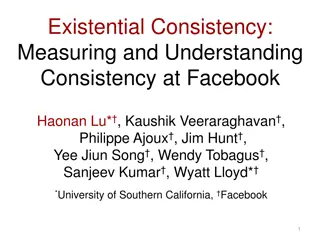



![Town of [Town Name] Real Estate Tax Rates and FY 2024 Budget Summary](/thumb/62211/town-of-town-name-real-estate-tax-rates-and-fy-2024-budget-summary.jpg)

